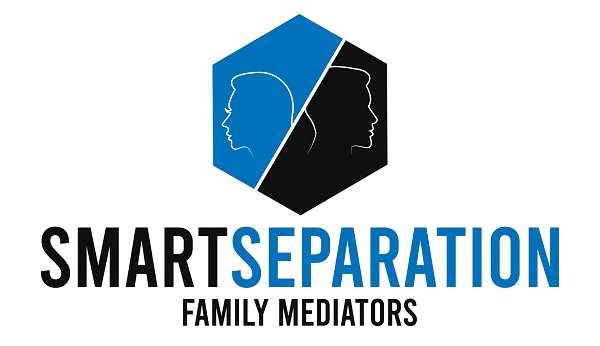What to Expect in Your First Divorce Mediation Session in Ontario?
September 6, 2025
Preparing for Your First Mediation Session
Walking into your first divorce mediation session in Ontario can feel overwhelming, but being prepared will make the process smoother and more productive. Taking the time to organize both practical documents and your mindset will help you approach mediation with confidence.
The first step is gathering the key documents you’ll need. These typically include full financial disclosure, such as income statements, recent tax returns, and details of assets and debts. If you own property, you should bring mortgage statements, appraisals, or rental agreements. For couples with children, it’s important to have parenting schedules, school information, and notes about routines or special needs, as these details will guide discussions about custody and parenting time.
Equally important is mental and emotional preparation. Mediation is designed to be cooperative, but strong emotions often surface when discussing separation. Taking time beforehand to clarify your goals, reflect on possible compromises, and practice managing stress can help you remain focused. Many couples in Toronto find it helpful to approach mediation with a willingness to listen and problem-solve rather than rehash conflicts.
Finally, before entering mediation, it is highly recommended that each spouse consult a Toronto divorce lawyer. While mediators guide the process, they cannot provide legal advice.
The Structure of a First Mediation Session
A first divorce mediation session in Ontario is carefully structured to create a respectful and productive environment. The session typically begins with the mediator’s introduction, where they explain their role, outline the ground rules, and emphasize confidentiality. Accredited family mediators in Toronto are required to remain neutral, meaning they do not take sides or make decisions for the couple.
After the introduction, each spouse is invited to share their concerns, goals, and priorities. For example, one spouse may be focused on ensuring financial stability, while the other may be more concerned about parenting arrangements.
The mediator then works with the couple to set an agenda for the session. While it is unlikely that every issue will be resolved in a single session, having a clear roadmap makes the process more efficient and less overwhelming.
The Mediator’s Role in Guiding the Discussion
In every divorce mediation session in Ontario, the mediator’s role is to create a balanced and supportive environment where both spouses feel heard. Accredited family mediators in Toronto are specially trained to ensure that communication remains respectful and constructive, even when difficult topics arise.
One way mediators achieve this is by promoting balanced communication. They make sure that neither spouse dominates the discussion and that both parties have equal time to share their perspectives. If one spouse is more vocal than the other, the mediator may pause the conversation to invite the quieter party to contribute.
Mediators also use proven techniques to manage conflict and keep discussions respectful. For example, they may set clear ground rules at the beginning of the session, use active listening strategies, or separate the parties temporarily (known as “caucusing”) if emotions run too high.
Above all, mediators ensure that both parties in Toronto feel supported throughout the process. While they do not provide legal advice, mediators help clarify misunderstandings, reframe negative language into constructive dialogue, and guide couples toward compromises that benefit the entire family.
Common Topics Covered in the First Session
During the first divorce mediation session in Ontario, couples typically begin addressing the issues that are most important for moving forward.
One of the first topics often covered is parenting arrangements. Parents in Toronto mediation sessions usually discuss where the children will live, how time will be shared between households, and how decisions about education, health care, and extracurricular activities will be made. Child support is also addressed, guided by Ontario’s Child Support Guidelines, which provide a framework for determining fair and consistent payments based on income and custody arrangements.
In Ontario, couples must also address the matrimonial home separately, as it receives special legal treatment under the Family Law Act.
Interim financial support and household expenses during separation are also discussed, especially if one spouse depends on the other’s income to meet basic needs.
Finally, the first session often highlights areas that require further information or expert input. For example, a pension valuation, business assessment, or updated property appraisal may be needed before final decisions can be made. By identifying these gaps early, couples can work toward a thorough and fair resolution in later sessions.
Next Steps after the First Session
After completing the first divorce mediation session in Ontario, couples often leave with a clearer picture of what needs to be resolved and how the process will move forward. The number of mediation sessions required varies depending on the complexity of the issues. Some couples in Toronto are able to reach agreements in just two or three sessions, while others may need several more if there are significant disputes around property division, child custody, or financial support. Once progress has been made, the mediator may prepare a Memorandum of Understanding (MOU).
It is strongly recommended that each spouse review the MOU with a Toronto divorce lawyer before signing any final agreement. Mediators cannot provide legal advice, so having a family lawyer review the terms ensures that your rights and obligations under Ontario law are fully protected. Independent legal advice also strengthens the enforceability of the agreement if it is ever challenged in court.
As an experienced family and divorce mediator in Toronto, I often write blogs to provide insights, tips, and resources on family mediation and divorce in Ontario. Follow my blog to stay informed and empowered during challenging times.



